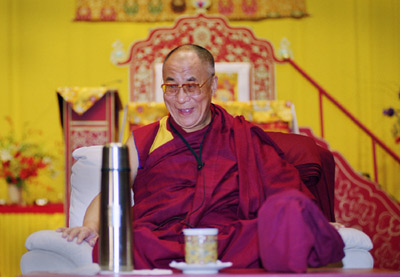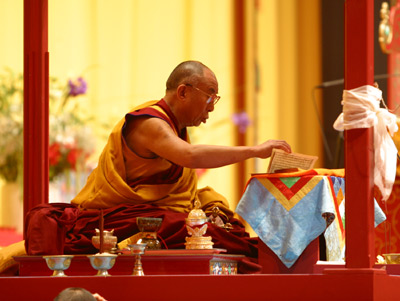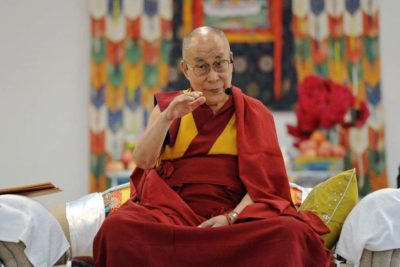
Sua Santità il Dalai Lama: "Quando inizierete ad osservare con attenzione la sofferenza degli altri esseri senzienti, allora sarete in grado di sviluppare la grande compassione".
Iniziazione al Kalachakra per la Pace nel Mondo Graz 2002
Insegnamenti di Sua Santità il 14° Dalai Lama su:
Gli stadi intermedi della Meditazione
di Acharya Kamalashila,
Le trentasette pratiche del Bodhisattva
di Ngulchu Thogme Zangpo,
La lampada sul sentiero verso l’illuminazione
di Lama Atisha Dipamkarashrijnana
Appunti, traduzione ed editing del Dott. Luciano Villa e di Graziella Romania nell’ambito del Progetto “Free Dalai Lama’s Teachings” per il beneficio di tutti gli esseri senzienti.
Prima parte del primo giorno, 15 Ottobre 2002
Ci siamo oggi riuniti in questa meravigliosa città di Graz sulla base d’un antefatto che ne spiega il motivo. In occasione della mia ultima visita a Graz, avvenuta pochi anni or sono, il Sindaco mi invitò a tornare in questa città tanto suggestiva, manifestandomi anche il desiderio che, per l’occasione, conferissi l’iniziazione del Kalachakra. Tra le motivazioni, figurava non solo la posizione centrale che la città di Graz ricopre nella geografia europea, ma anche la sua facile accessibilità dai diversi paesi del continente. Dal momento che, inoltre, la vicina Svizzera ospita in verità molti tibetani, la scelta di questa città avrebbe permesso loro di raggiungere agevolmente, anche in un numero consistente, questo luogo per ascoltare gli insegnamenti del Kalachakra. LEGGI TUTTO … Continue reading

